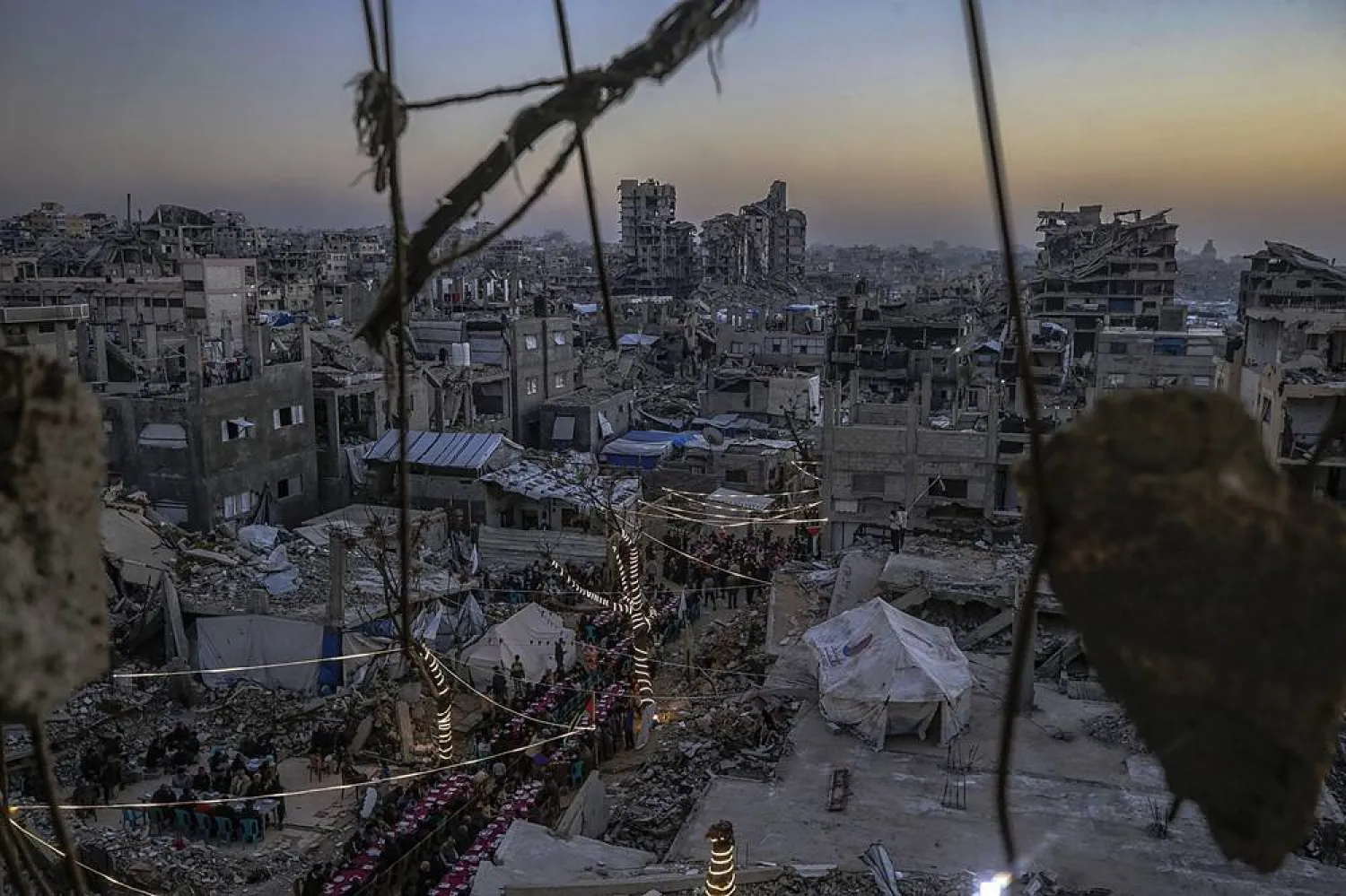Israel stepped up strikes Wednesday on war-torn Gaza's south, where medicines were expected to be delivered for hostages in exchange for humanitarian aid under a newly brokered deal.
But nearly 24 hours after the deal was announced, a top Hamas official set new conditions for providing the drugs, insisting Israel must not inspect the trucks carrying them.
Air strikes and artillery fire targeted Khan Younis throughout the night, said an AFP correspondent in the southern Gaza Strip's biggest city.
"It was the most difficult and intense night in Khan Younis since the start of the war," said Gaza's Hamas government, whose health ministry reported 81 deaths across the Palestinian territory.
Fighting has ravaged Gaza since Hamas's unprecedented October 7 attacks on Israel that resulted in the death of about 1,140 people, mostly civilians, according to an AFP tally based on official Israeli figures.
At least 24,448 Palestinians, about 70 percent of them women, young children and adolescents, have been killed in Israeli bombardments and ground assaults, according to the Gaza health ministry's latest figures.
Hamas and other militants seized about 250 hostages during the October 7 attacks, and around 132 remain in Gaza, including at least 27 believed to have been killed.
The fate of those still in captivity has gripped Israeli society, while a broader humanitarian crisis in Gaza marked by the threat of famine and disease has fueled international calls for a ceasefire.
Medicine for hostages
The agreement announced by Qatar on Tuesday following French and Qatari mediation will allow medicines to reach the hostages and aid to enter the besieged Palestinian territory.
The International Committee of the Red Cross welcomed the deal, under which 45 hostages are expected to receive medication, as "a much-needed moment of relief".
A security source in Egypt said a Qatari plane carrying medicines had arrived on Wednesday at El-Arish near the Rafah border crossing with Gaza.
France said the drugs would be sent to a hospital in Rafah, given to the Red Cross and divided into batches before being transferred to the hostages.
A top Hamas official announced new conditions for the deal on Wednesday, however.
Writing on X, formerly Twitter, Musa Abu Marzuk demanded 1,000 boxes of aid for Gaza for every one going to the hostages and that a country Hamas trusts, not France, supply the medicine.
'Why are they doing this?'
At the Abu Yussef Al-Najjar hospital in Rafah, Palestinians stood in front of bodies wrapped in shrouds, mourning the loss of loved ones killed in an overnight Israeli strike.
"Why are they doing this? They are destroying us," Umm Muhammad Abu Odeh, a woman displaced from the north Gaza town of Beit Hanun, told AFP.
The Israelis "told us to go south, and we came here... but there is no safe place in Gaza".
The United Nations says the war has displaced roughly 85 percent of Gaza's 2.4 million people, many of whom have been forced to crowd into shelters and struggle to get food, water, fuel and medical care.
In Rafah, Safa Fethi Hamad has been anxiously waiting for more than a month to cross the border to Egypt.
"We are all going to die. Food is very limited, we have no protection," she told AFP.
The Israeli public has kept up intense pressure on Prime Minister Benjamin Netanyahu's government to return the hostages, with officials insisting military pressure is necessary to strike any deal.
At Nir Oz kibbutz, where about one in four residents was killed or kidnapped, Yossi Schneider is clinging to hope for his baby relative Kfir Bibas despite Hamas announcing his death.
The youngest hostage kidnapped by Hamas was less than nine months old on October 7 and would be celebrating his birthday this week.
"We are thinking about them every day, every second, every minute," Schneider said of Bibas and his missing brother and mother.
West Bank violence
Violence has also surged in the Israeli-occupied West Bank since October 7 to a level not seen since the second Palestinian intifada, or uprising, between 2000 and 2005.
Israeli army raids and attacks by settlers have killed around 350 people in the territory, according to an AFP tally based on sources from both sides.
The Palestinian Red Crescent said an Israeli strike on Wednesday killed four people in Tulkarem refugee camp, in the north of the Palestinian territory.
The Israeli military confirmed an air strike that killed "a number of terrorists".
Al-Aqsa Martyrs' Brigades, the armed wing of Palestinian President Mahmoud Abbas's Fatah party, said five of its fighters died in a strike east of the city of Nablus.
The Israeli army said it killed a Palestinian militant to avert an "imminent terrorist attack" he had been planning.
Fears are mounting that the Israel-Hamas conflict will trigger an all-out war across the Middle East, with growing violence involving allies of the Iran-backed Hamas.
The US military said it carried out fresh strikes in Yemen on Tuesday after the country's Iran-backed Houthi militias claimed another missile attack on a cargo ship in the Red Sea.
It came just days after the United States and Britain bombed scores of targets inside Houthi-controlled Yemen in response to attacks by the militias, who say they are targeting Israeli-linked shipping in solidarity with Gaza.
Israel's army has exchanged regular cross-border fire with Lebanon's Hamas-aligned Hezbollah since the start of the war.
UN chief Antonio Guterres told the World Economic Forum in Switzerland on Wednesday that a "full-fledged confrontation" in Lebanon "would be a total disaster" to avoid at all costs.
Meanwhile, Iran -- which backs the Houthis and Hezbollah -- carried out a missile attack in Iraq's Kurdistan region against what its Revolutionary Guards alleged was an Israeli spy headquarters and a "gathering of anti-Iranian terrorist groups".









